
Meet our students
We provide transformational mental health and social care courses that will equip and empower you throughout your career
We’re proud of our students. They come from a variety of backgrounds and have different experiences that create a real, diverse and exciting culture.
A selection of our students, studying for professional doctorates, introductory courses and postgraduate courses share their experiences of life at the Tavi.
- Ajoy
- Aurore
- Chaya
- David
- Esther
- Ibhafidon
- Jason
- Leila
- Midge
- Sagal
- Sameena
- Sharna
- Susan
- Will
- Zivile
- Cindy
- Yerim
- Nij
- Rosie
- Eva
- Milsa
- David
- Charlotte
- Patricia
- Kairo
- Rasik
- Runbao
Meet Ajoy, a student on our ‘Consulting and leading in organisations: psychodynamic and systemic approaches (D10)’ course
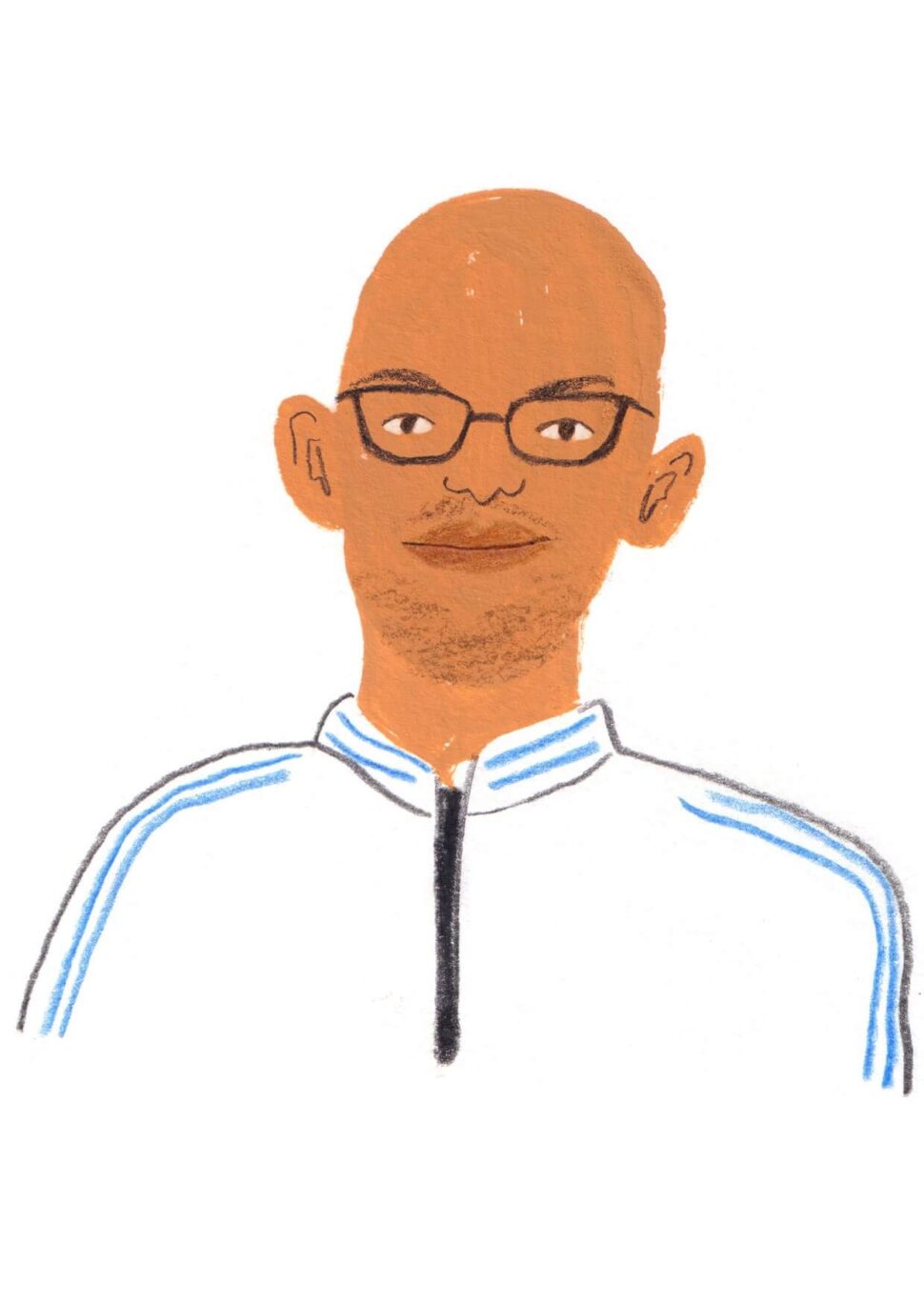
I decided to study at the Tavistock and Portman because it has been teaching about groups and organisations for a long time and has a good reputation in this area.
Since I’ve been on the course, I’m more able to understand the emotions I’m experiencing, what might lie behind them and make sense of what’s happening in the teams I’ve been working in. I’ve found my participation in groups and organisations has subsequently improved. I’ve been able to take up my authority and have what might appear to be difficult conversations with a range of people.
“I’ve really enjoyed learning what it means to hold a consultative stance both at work and in life more generally through a variety of methods: lectures, seminars and experiential groups. I’ve especially appreciated the focus on understanding and working with difference.
I’ve also appreciated having the opportunity to attend the Tavistock’s ‘Thinking space’ sessions, BAME support group sessions and have some contact with a tutor throughout the year.
Having started the course online, I’ve missed out on the more collegial elements of the course, which, I imagine, would have happened in those in-between moments informally with fellow students. I’m really looking forward to the transition to in-person teaching, when it can resume again.
I really enjoyed seeing our teachers in person and visiting the Tavistock for the first time in July 2021, after nine months of online teaching!
If anyone is considering applying to this course, I say – come, just do it!”
Meet Aurore, a student on our ‘Psychological therapies with children, young people and families (M34)’ course
I decided to study at the Tavistock and Portman because of the outstanding quality of the teaching. Since starting, I have been inspired by every teacher I have met, their profound understanding of the subjects and their ability to create a safe environment for me to explore and share my ideas.
I have enjoyed being encouraged at all times to make the material my own, always to pause to think and critically assess the lessons, to hold onto uncertainty and ambiguity and not jump to conclusions. I have also met amazing fellow students from all backgrounds, and I have enjoyed and valued the stimulating debates and friendships formed.
The course has changed my life for the better. I drastically changed my career path, and the courses have helped me face that challenge and follow it through. It has strengthened my sense of self and my determination to become a Child Psychotherapist.
What has surprised me about studying at the Tavistock is the complexity of the work carried out in difficult circumstances. It has been an emotional as well as an intellectual journey.
I would say to anyone that is thinking about studying at the Tavistock that it is a wonderful experience but make sure you have the emotional availability and support from those around you throughout your time studying.
Meet Chaya, a student on our ‘Systemic psychotherapy (M6)’ course
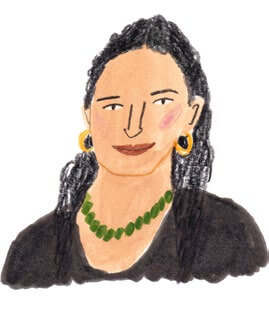
I decided to study at the Tavistock and Portman as it came highly recommended by many of my colleagues who had studied on various courses, including the courses I have now completed. I feel very privileged to be practising as a trainee systemic psychotherapist in a CAMHS team at the Tavistock and to be helping children and families who need it.
“What I enjoy most is the teaching which is to a very high standard. The wealth of expertise from the broad range of lecturers and clinicians who teach us has enriched my practice. I also appreciate the importance that is placed on working with diversity.
The courses I have completed so far at the Tavistock and Portman have enhanced my personal and professional life far beyond what I had imagined when I embarked on the programmes. They have turned me into a more confident psychotherapist and a better supervisor at my workplace. It has helped me manage my relationships better which in turn has also made me a better psychotherapist.
I have always felt very well supported as a student at the Tavistock and Portman. I have a lecturer who went out of her way on many occasions to accommodate my needs, and the needs of other Orthodox Jewish students, whether it was around our dietary requirements or attendance at some of the lectures which fell on times that we were not allowed to attend for religious reasons.
My advice to someone who is considering applying for a course is to do it. You will not regret it! The learning is rich from the teaching, but also the diverse student groups and the learning and support we give each other. The excellent teaching that you have heard about lives up to its reputation and I never could have imagined that studying at the Tavistock would take my career as far as it has.”
Meet David, a student on our ‘Working with children, young people and families: a psychoanalytic observational approach (M7)’ course
I decided to study at the Tavistock and Portman as a colleague of mine already attended a course there and she mentioned how rewarding and positive the experience was so I wanted to see what it was like.
The course has impacted on my life across all aspects. It has changed how I understand myself, my kids and my friends and family. Crucially, I have also developed a better understanding of my work colleagues and the clients I work with.
I really enjoy the learning on my course, and how supportive the staff are – from teachers and lecturers to the admin and library staff. This has really surprised me the most about the whole experience at the Tavistock!
To anyone who is considering applying to a course at the Tavistock, I would say to go for it – its life changing, informative, rewarding and beneficial to your work and personal life.
Meet Esther, a student on our ‘Psychological therapies with children, young people and families (M34 plus)’ course
I decided to study at the Tavistock and Portman as whilst I was doing my pre-clinical training as an LSA and supporting children with emotional and behavioural difficulties, there was an M34 trainee who used to come into the school once a week to offer the children therapy. I observed that the children she would take out would slowly shift, where they appeared to be stronger and more integrated. When I asked this woman about the Tavistock, she said something that I will never forget; ‘’The staff don’t just work with their brains, they work with their hearts.’’ That clinched it for me.
Whilst on the course I have really enjoyed the theory modules, it was wonderful to take part in a discussion that would evolve and meander and to observe how different parts of the reading struck people in different ways. Our tutors were able to stand back, lead, hear, think, and observe all at the same time.
My course has impacted me in so many ways, I feel a lot more secure in who I am because I understand myself better. This has had a positive effect on my everyday life, and I am getting the jobs I want because I am able to express what I had hidden within.
The Tavistock is full of diversity, and that did surprise me. It’s lovely to be in a place where the thinking around difference and diversity manifests itself in a very real way.
To anyone who is considering applying to the Tavistock, I would say to go for it, but bear in mind that you will need to keep your mind and heart open, hang on very tight and let it take you to unknown places!
Meet Ibhafidon, a student on our ‘Child, adolescent and family mental wellbeing: multidisciplinary practice (D24)’ course
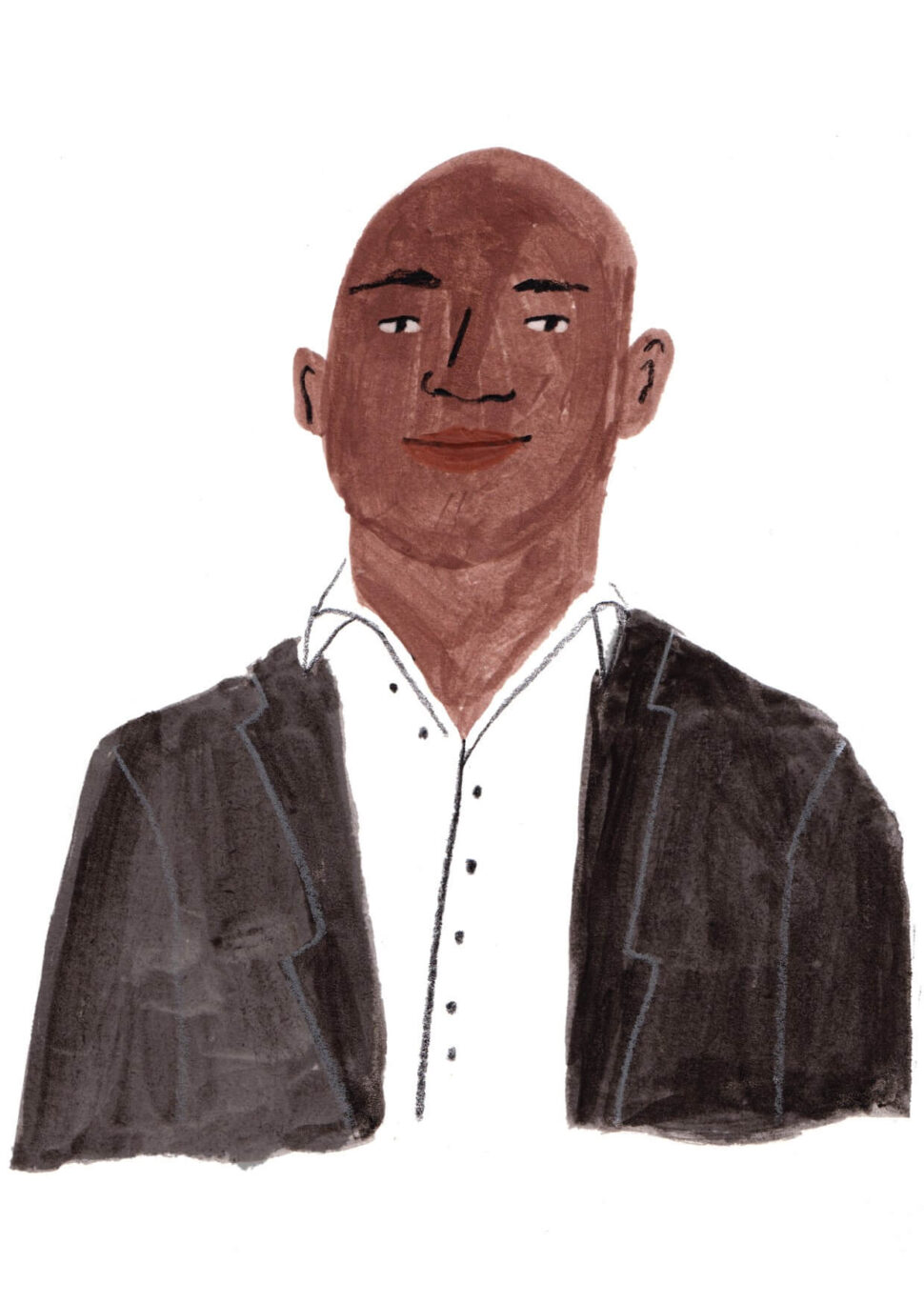
What I enjoyed most about studying on this course was meeting so many people from diverse backgrounds and the sharing of knowledge and experience between us all.
This course has massively helped to build my confidence in my everyday work with families. It has also given me a good understanding of the theories and techniques that I can use when working with young people.
“The main reason for studying at the Tavistock and Portman was because of the first hand experience and practical expertise of staff that teach on the courses. Secondly, the Trust is an institute where academic excellent is pursued and I wanted to be a part of that.
I was really surprised at the impact the group relations conference had on me – in a good way! It really helped to advance my knowledge on certain aspects of the course and allowed me to reflect on myself as an individual.
My advice for anyone considering studying at the Tavistock and Portman is that they should go for it! Do not delay in getting started as the education will make such a positive impact to their work.”
Meet Jason, a student on our ‘Child, community and educational psychology (M4)’ course

The Tavistock and Portman uniquely offers learning in a functioning clinical mental health setting, a CAMHS placement and world renowned psychoanalytic and systemic academic institution.
These features all suited my experience, developing my skill set and professional interests really well. I have been fortunate to make use of volunteering and job opportunities in various education, youth and mental health services and take lots of satisfaction from this work, so studying here is a good fit for me.
“My course has taken me on an amazing journey and provided me with professional skills and tools that make a positive impact on the development of the children and young people I work with.
Additionally, building on my reflective skills and opportunities to broaden my perceptions of the world in a supportive nurturing environment has been awesome.
The opportunity to study at this level and hopefully enact broader, real-world changes have been lifelong goals of mine. Giving back to the system which nurtured me to this position is paramount to me. I also hope to do my best, representing myself as a black man and father, my family and my community in my role as a qualified educational psychologist.
On hearing that I had been accepted to study at the Tavistock and Portman, I spent a huge portion of time worrying about how I would manage doctoral level academia. I had been out of formal education for ten years before taking up training and believed this would count against me. However, I was pleasantly surprised by the amount and often bespoke support I received for things like academic writing. This proved to be a big help.
The decision to study anywhere is a deeply personal one. Particularly when the course requires a significant personal investment, challenges your personal and professional perceptions and will potentially shape your life’s work. As such I would advise anyone applying to approach the application process as a matching exercise. How do your needs and preferences align with the expectations that will be placed on and support offered to you? Good luck!”
Meet Leila, a student on our ‘Psychoanalytic studies (M16)’ course
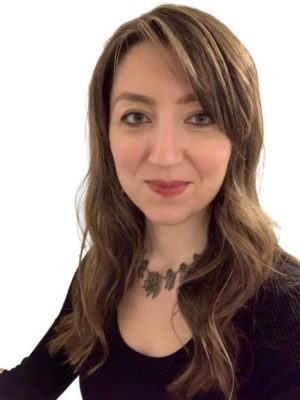
I decided to study at the Tavistock and Portman as I was so aware of its reputation in the psychoanalytic studies field, and of its rich heritage.
I really enjoy the interdisciplinary nature of this course as we have studied the psychoanalytic application to art, drama, music and poetry. The career that I work in is within a completely unrelated field so it makes it all the more exciting to study!
My course has impacted me in so many ways and has definitely made me a more of a creative thinker and much more confident in my ability to understand people. The classes were also a godsend during COVID19 – I looked forward to them and they were the highlight of my week!
To anyone who is considering applying to the Tavistock, I would say to do your research and talk to previous students about their experiences.
Meet Midge, a student on our ‘Tavistock qualification in consultation (D10C)’ course
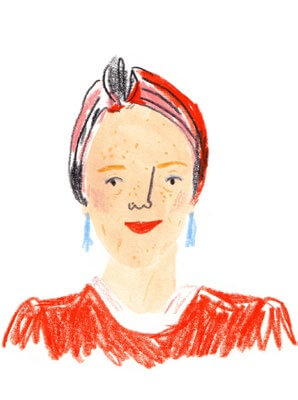
I decided to study at the Tavistock and Portman as I was keen to undertake study in organisational dynamics from an interpersonal and systemic perspective. Having attended CPD courses here, I felt that this would be a positive place to study; the course also came recommended to me.
The teachers on the course are all experienced consultants and have a lot of practice behind them; I felt that this was really important, particularly as I was keen to have practical input. Although the course is not cheap, in comparison to similar courses, it was affordable.
“I really enjoyed the experiential aspects of the master’s level course – having to think in the ‘here and now’ and really explore the feelings that were being stirred up in me vis-à-vis the dynamics of the group. The experiential part of the course was grounded in theory, both seminal and contemporaneous and this really helped me to gain a strong foundation in organisational theory from psychodynamic and systemic level.
The course has had a positive impact on my life, career and practice. At a personal level it has caused me to pause and to consider who I really am and to access my voice as a mature, Irish woman. It has enabled me to look more deeply at discriminatory practices at all levels in organisations, including systemic racism, sexism, and ageism and have taken this into my workplace and been proactive in tackling many of these unseen practices and giving voice to vulnerable groups and supporting change in the workplace.
Whilst change is not always easy or possible, the course has given me the tools to understand what might be occurring beneath the surface.
Overall, I believe that I have had a positive experience at the Tavistock and Portman. Whilst the organisation, like other institutions struggles with workplace dynamics, the important thing is that there is a desire amongst the tutors on the course to consider these dynamics with the student group and what is brought in from the outside as part of the overall student experience.
I think that it’s important to recognise that by virtue of the kind of courses run at the Tavistock, studying here will have an emotional impact. It’s not so easy to compartmentalise the experience into just studying and getting on with your life outside of the courses. However, I think that this is one of the unique positives of studying at the Tavistock – you will never view the workplace (or yourself) in the same way again.”
Meet Sagal, a student on our ‘Child and adolescent psychoanalytic psychotherapy (M80)’ course
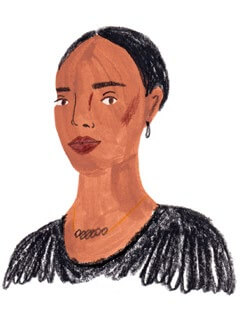
The Tavistock and Portman has a world renowned reputation in child psychotherapy training and highly experienced clinical educators. I feel fortunate that I have been able to begin my training journey here on the Working with children, young people and families: a psychoanalytic observational approach (M7, daytime) course, and I will qualify here as a child and adolescent psychotherapist from the M80 course.
“The infant observation really moved me and it has demonstrated how powerful something as seemingly innocuous as observing a small baby can be. I think this aspect of the course definitely enhanced my sensitivity to the emotional life of infants.
The journey I have taken since I started studying at the Tavistock and Portman has been transformational, in terms of both my professional and personal life. During the course, I have encountered great minds, in course tutors and peers, and it has been one of the most significant periods of learning of my adult life.
The course has enriched my ability to be able to think differently about the children I work with. It has given me the resilience and courage to enhance my awareness of my own feelings, and unknown parts of my personality, in turn, enhancing my sensitivity and capacity to reflect on the children I work with.
I was fortunate enough to have been a recipient of the Stuart Hall Foundation Scholarship, which was set up to improve accessibility onto the Child and adolescent psychoanalytic psychotherapy (M80) course for BAME students. We are all becoming increasingly aware of how a lack of diversity in the profession impoverishes our thinking. I strongly believe that diversity is something that enriches all of our work and I am very pleased and encouraged that issues of accessibility and diversity have been taken up seriously at an institutional level, and I am hopeful that there will be a new generation of BAME child psychotherapists to reflect this effort.
If someone is considering applying to the Tavistock and Portman, I would say just go for it. But be prepared for a transformational learning experience that will change the way you look at yourself, your relationships and the world around you. I was surprised by how impactful the experiential aspects of the learning at the Tavistock are.”
Meet Sameena, a student on our ‘Foundations of psychodynamic psychotherapy (BD58, evening)’ course
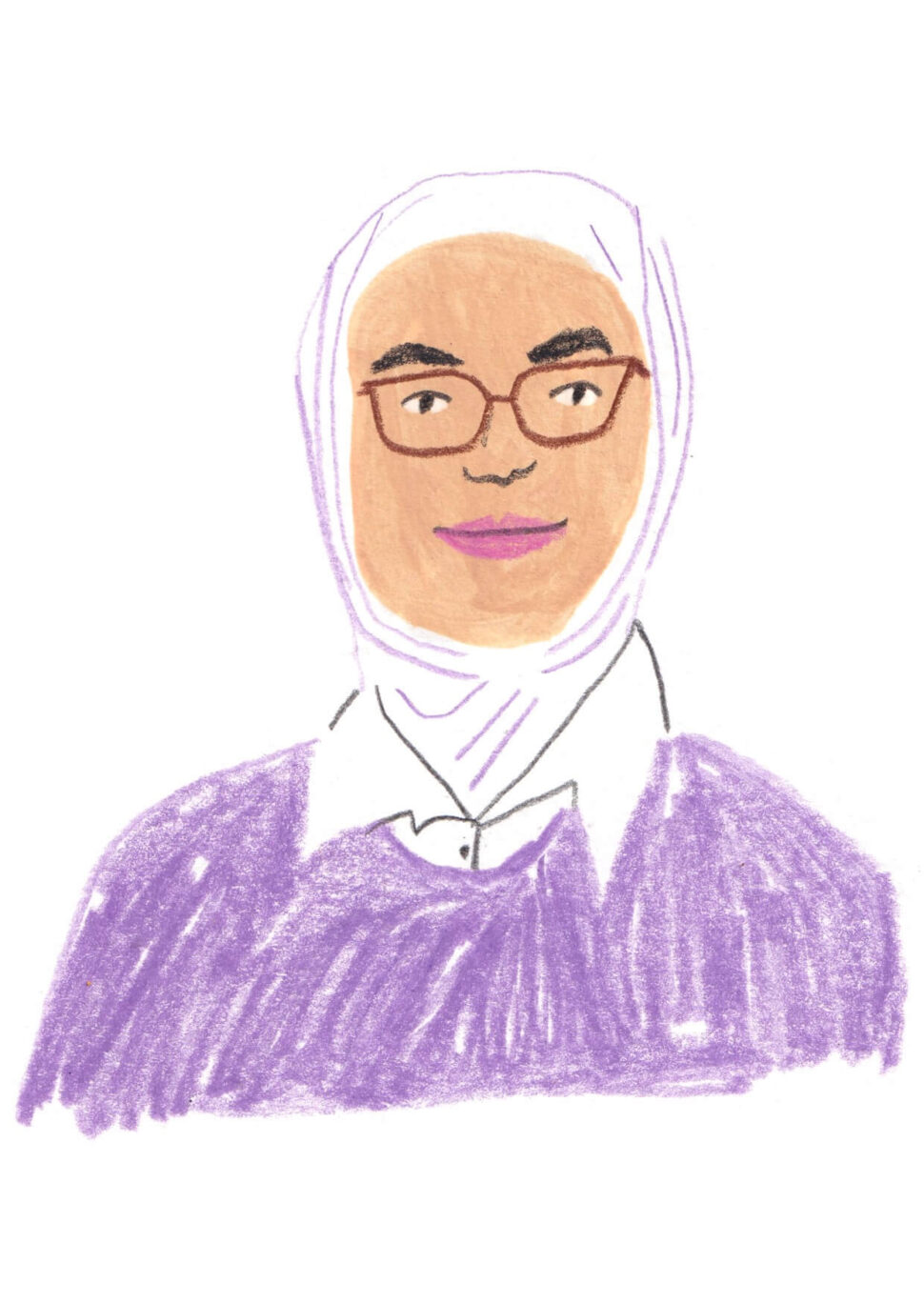
I decided to study at the Tavistock and Portman as the reputation was excellent and when I investigated comparative courses, I felt that the Tavistock had a broader syllabus.
During my time studying the Psychodynamic reflective practice in mental health (D65) course, I knew that I had started a stimulating journey that had allowed me to think about my work as a counsellor in a deeper way and I was keen to continue this path by enrolling on the Foundations of psychodynamic psychotherapy (BD58 Evening) course in 2021.
“I have chosen to do the evening course as it allows me to manage my work and caring commitments. I’m in my first term so am still to establish my clinical placement but feel I have made a routine where I set aside time to study and attend teaching. Even at this early stage on the course I am keeping in mind concepts we are studying and what this may mean in my work. I’m looking forward to starting my placement to work more on the unconscious processes of patients.
I really enjoy the seminars as it provides an opportunity to discuss psychoanalytic concepts from the reading material. All the tutors are very knowledgeable and bring a wealth of clinical experience to share and use as examples to strengthen understanding.
Seminars are attended by mixed year groups which works well, providing a rich discussion with a mixture of experiences. I’m also learning to ‘sit with the anxiety’ around the process of obtaining placements, which is made easier by the support and advice received by the course team.
I have enjoyed the challenging and thought-provoking reading backed up by discussions with experienced clinicians and am looking forward to putting what I am learning in to practice through placement work.”
Meet Sharna, a student on our ‘Advanced practice and research social work and social care (D55)’ course
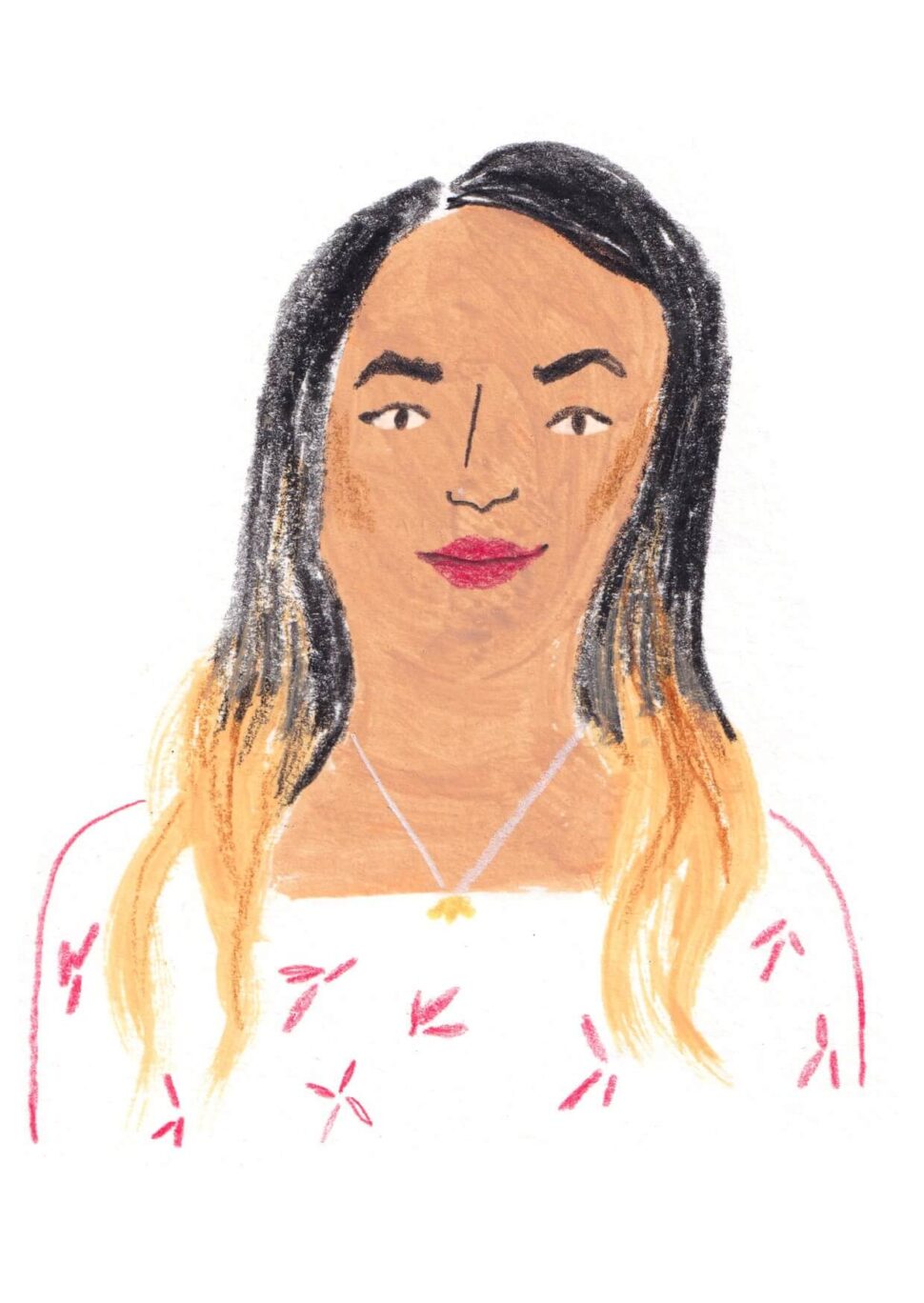
My decision to study at the Tavistock and Portman was a gradual process. I initially became aware of the Trust following an interesting reflective group discussion with Professor Andrew Cooper, which explored relationship-based social work practice. I later had the privilege of meeting another lecturer which further sparked my interest in psychodynamic theory.
“The content of the course is intellectually stimulating and has been very beneficial in helping me to navigate the complexities of social work practice, particularly during the COVID-19 Pandemic. In addition, the course has provided the opportunity for me to meet array of different professionals, from variety of specialisms. My colleagues and the lecturers have been incredibly thoughtful and supportive of my continuing professional development and my overall wellbeing.
I was surprised by the group relations conference; it was a very challenging but valuable experience, which provided a unique insight into group dynamics.
The course has impacted my life in a multitude of ways. It has helped me to cultivate my self-efficacy, self- awareness, analytical skills and professional judgement.
I am aware that for busy practitioners that the idea of completing a doctorate is intimidating, however if you are disciplined with your time it is a very enriching experience.
I feel my service users and my organisation are also benefitting from me studying. If someone is thinking about applying to this course, I would recommend that you explore all the course information and ask to speak to a member of staff if needed. The support staff and lecturers are very friendly and supportive.”
Meet Susan, a student on our ‘Child, adolescent and family mental wellbeing: multidisciplinary practice (D24)’ course
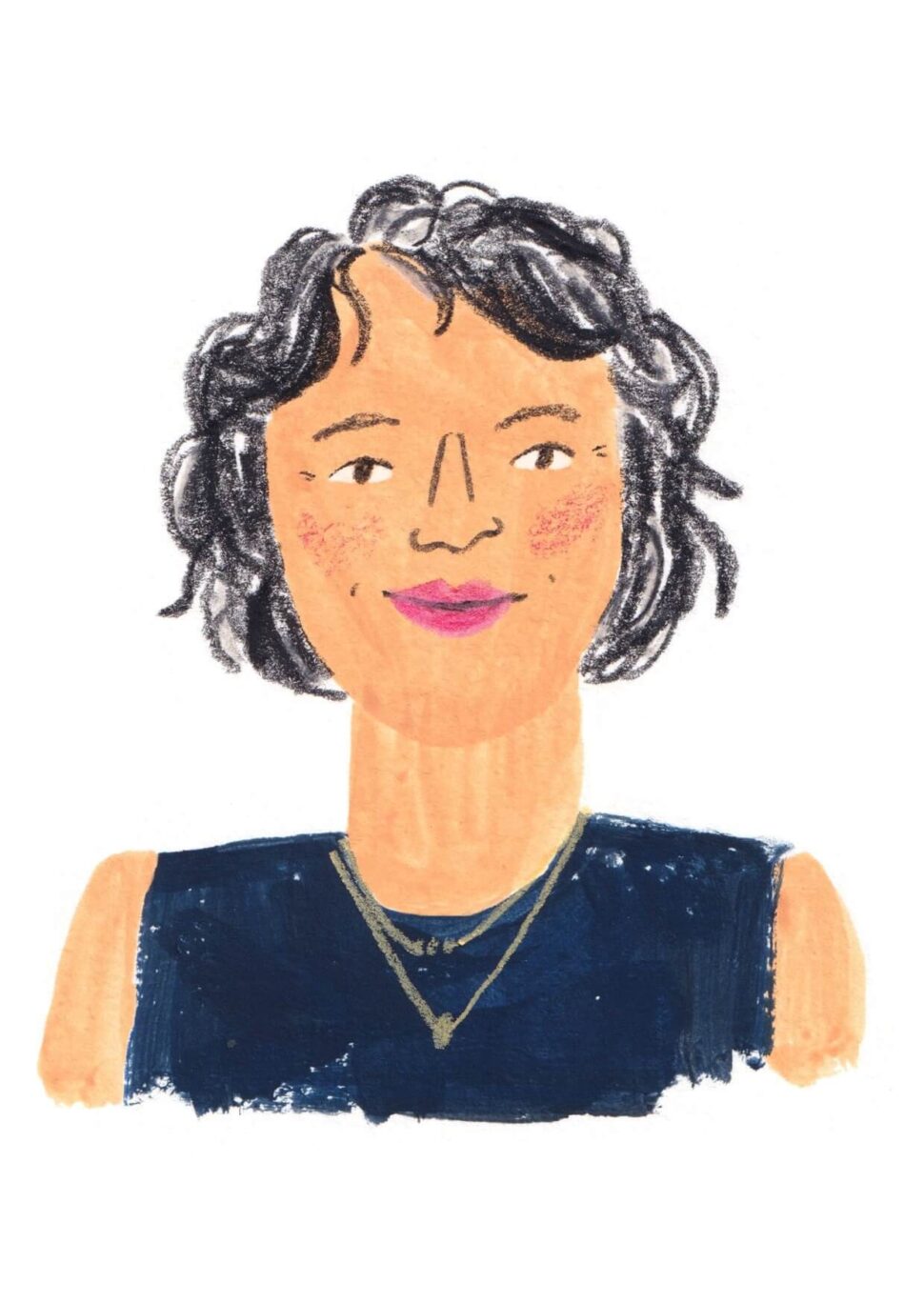
I chose to study at the Tavistock because I wanted a course that would be rigorous intellectually and well regarded. I genuinely feel that the course has had an impact on all areas of my life.
In my clinical life I have begun to understand, navigate and speak to the connection between mind and body with much more confidence. My appreciation of the debates around race and diversity have expanded. I have benefited personally and intellectually from grappling with psychodynamic theory.
“What I really loved about this course was that the lecturers teaching the systemic and psychodynamic frameworks would discuss points of theory between themselves and we, the students, would be able to compare and contrast and note areas of similarity and divergence between the two models – it was fascinating!
There was nothing that surprised me by studying this course – I had really high hopes regarding the integrity of the teaching staff and I was not disappointed.
When it comes to thinking if a course is for you, it really is ‘horses for courses’ but I certainly feel that I have found my fit at the Tavistock and Portman.”
Meet Will, a student on our ‘Introduction to counselling and psychotherapy (D12)’ course
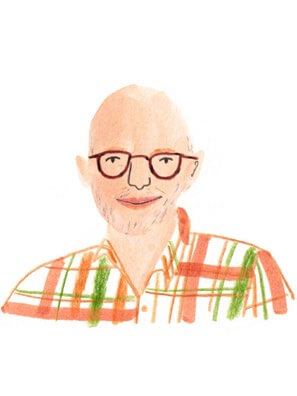
I decided to study at the Tavistock and Portman as I had been considering retraining as a therapist for some time. I had looked at different routes over the years, such as a psychology conversion course or general counselling introduction, but had never been sure which was best for me.
After reading the outline of this course, I found that all of the concepts covered in the weekly readings were areas I was interested in being introduced to or discovering more about. The balance between the theory part of the course and the work observation part also appealed to me; there would be opportunities to relate the concepts to real experience.
“The most enjoyable part of the course is sharing insights, confusions, frustrations and revelations with the other members of the class. The subject matter often intersects with each person’s life in very different ways and exchanging these helps flesh out the various possible implications.
I have found the theories we’re exploring have made me look at many of the emotional exchanges of everyday life, whether that is at home or at work, in a different way. It genuinely changes your perspective on others and yourself and has provided useful tools to better understand the service users I work with. It has also been an important stage on the road for me to change careers to working full time in mental health.
An unexpected thing about studying here is the onus on students to lead their own learning, to sit with the discomfort of not knowing and to figure things out. This has been surprising and, at times, challenging. It has also proven to be one of the most fruitful and empowering parts of the learning process.
I know it can be daunting choosing an introductory course from the breadth of options that are out there. The Tavistock and Portman definitely has a unique approach and it’s good to get as much of a sense of that as you can.
My advice to someone considering applying would be to attend an open day, even if it’s virtual! I found this really gave me a feel of the kind of conversation I was joining at the Tavistock. Even if you’re uncertain, don’t be discouraged; this course gives you every opportunity to figure out what your approach is and you’ll definitely know yourself better by the end of it.“
Meet Zivile, a student on Perinatal, child, adolescent and family work: a psychoanalytic observational approach (M7)
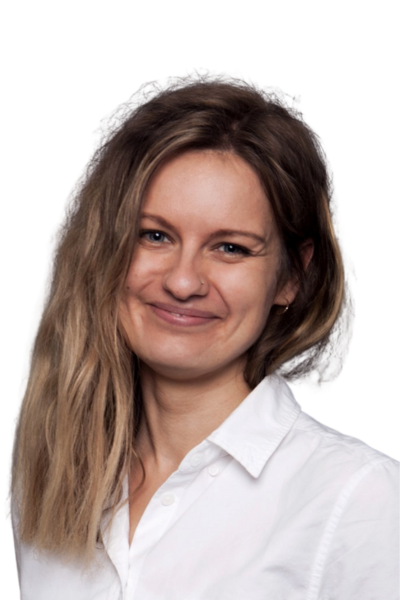
Previous student on Introduction to counselling and psychotherapy (D12)
“When the Pandemic caused most of us to pause, I started reflecting on my past ventures and interests, and what I wanted to do next. I felt I wanted to reconnect with my past academic interests and combine them with my current work. During my undergraduate and postgraduate studies, I worked on several papers that explored the conceptualisation of mental health in South Asia through a historical lens. I remembered how intrigued and fascinated I was by correspondence between Sigmund Freud and India’s first psychoanalyst, Girindrasekhar Bose – my first proper glimpse of psychoanalytic thought.
So, I searched for different courses, but I wasn’t sure whether I wanted to commit to another postgraduate degree. The Tavistock and Portman’s Introduction to Counselling and Psychotherapy (D12) stood out for me as it was a one-year course that offered not only the opportunity to explore psychoanalytic theory but also to reflect on how psychoanalytic concepts and ideas could be applied to work and other areas of one’s life.
One of the D12 seminars required students to bring materials from their work. Although I worked with both adults and children at that time, I chose to bring cases from my work with a children’s hospice. Reflecting on my work materials with the seminar group helped me to feel more connected and attuned to my work. I also realised how much I enjoyed working with children and young people and how important that work was for me. Once I completed D12, I knew I wanted to continue developing my knowledge and skills in the field, but with a particular focus on children and young people.
I spoke to some people who had been on the Perinatal, child, adolescent and family work: a psychoanalytic observational approach (M7) and Child and adolescent psychoanalytic psychotherapy (M80) courses about their experiences. The encouraging and honest feedback about the studies, combined with my own experience on D12, helped me to make up my mind. I did not need to look any further – M7 felt like the right next step.
I appreciate that the M7 course provides opportunities to fit studies around one’s work schedule. I was pleased that I could choose the evening course without needing many adjustments to my work schedule. Moreover, I value and enjoy the diversity of people on the course. People from various professional fields, cultural backgrounds and age groups bring unique perspectives and make discussions fascinating. It makes me think about my work from different angles. It also encourages me to adopt different approaches that I would have never thought about. I also enjoy the topics and materials that we go through in our lectures and seminars. The reading list comprises not only classical texts but also very recent ones. I appreciate that the Tavistock and Portman tries to get students to explore sameness and difference and how they manifest in our day-to-day lives and work with children and young people.
The course has made a noticeable impact on both my personal and professional life. I am enthralled by the continued development of my reflective muscle. I’ve noticed I’ve become less reactive and more responsive. I tend to pause more often and think about what might be happening to me and to the person standing in front of me and why I feel the urge to react. The dreaded and, at times, painful search for an infant to observe and weekly observations have taught me to be a little bit more comfortable with the unknown, be a bit more patient and trust myself. Slowing down and pausing to reflect have allowed me to notice the more nuanced communications of children and young people I work with. Unsurprisingly, this has made me feel more connected and hopefully more understanding and open. I hope my responses to them, and their behaviour are at least slightly more attuned and helpful than before.
M7 is a truly enriching course that takes you through the journey of growth. I am not sure whether initially I completely understood that this journey required commitment and courage to face one’s vulnerabilities and anxieties though. Moreover, throughout the learning journey, some frustrations and disappointments were inevitable. What surprised me the most was how supportive the course leads, tutors and course colleagues were and how genuinely they wanted people on the course to make the most of their studies. Not only do the course leads and tutors generously share their knowledge and experience, but they are also genuinely interested in, and value, your voice and contributions. I have always been a quieter participant in seminars, often hiding and avoiding speaking. In my case, English as a second language was contributing highly to my anxieties about speaking in seminars. However, throughout my time at the Tavistock and Portman, my confidence has grown immensely. I feel safe enough and encouraged to make my voice and thoughts heard.
If you are hesitating about whether this course is for you, reach out to people who are teaching, currently studying, or have completed the course. Hear what they have to say. People I spoke to provided genuine feedback that helped me to make up my mind and I have never regretted embarking on this journey. You may want to follow my path and first explore the field whilst doing a shorter introductory course that requires less commitment, such as D12 or EC1. One step at a time is more than good enough. When you are starting your journey on the course, don’t be afraid to seek support – you will always find people willing to talk through and reflect on the difficulties you may face on the course. Whether it is the course leads, tutors, or course colleagues – people are genuinely cheering for you, and you may find yourself rather enriched by the experience.”
Meet Cindy, a student on Systemic approaches to working with individuals, families and organisations (D4F – Foundation)
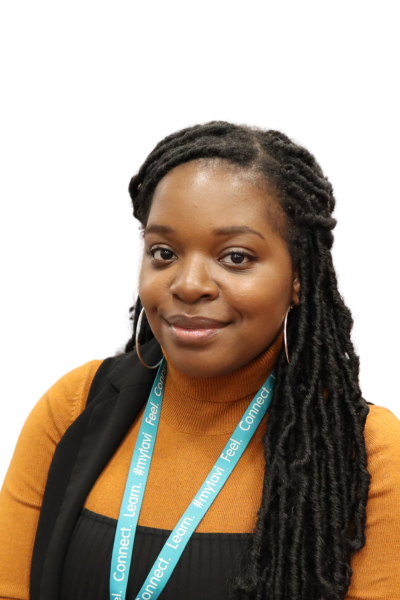
“I decided to study at the Tavistock and Portman because it is a well-known organisation and institute for improving mental health and wellbeing. I am an Integrative Child and Adolescent Counsellor/Psychotherapist, and prior to and during my training, I always heard my supervisors and senior professionals refer to the Tavistock as a reputable institution and an invaluable organisation to be a part of. My career goal is to qualify as a Systemic Family Psychotherapist, and there are clear career progressions leading to qualifying within the Trust. This is another reason why I chose to study at the Tavistock.
I really enjoy the fact that the content of the Systemic approaches to working with individuals, families and organisations (D4F) course can easily inform the work I do in my workplace. It shows that I am truly immersing myself in what is being taught and applying it in my practice. The course encourages me to be self-reflective and consider how I am responding to the topics covered.
I have only just recently embarked on my systemic training journey, and it has already impacted my practice and how I view and think about myself. My approach in one-to-one work with children and adolescents is broadening and my thinking is becoming more systemic. As a therapist, I engage in self-reflection and self-reflexivity. However, this course has plunged me into deeper dimensions of self-reflection. For instance, thinking about my various social graces (i.e. ethnicity, religion), and considering how these may impact my work is both intriguing and surprising.
During my time at the Tavistock and Portman, I have been surprised by the evident commitment to normalise talking about race and difference on the course. As a Black British woman, my experience on other training courses is that race and difference is a topic that is briefly discussed. But on the D4F course, race and difference is weaved into the body of the course. In addition to the material in the modules, there is an allocated time and space for trainees from the foundation and intermediate courses to come together and explore race personally, and in the work we do with families from diverse backgrounds. This is a unique experience that I am pleased to be a part of.
My advice to anyone considering applying to study at the Tavistock, is to have a good read of the prospectus and attend the open days to get information about the course you are interested in. If you want to be in an environment where you can learn new skills and broaden your perspectives both personally and professionally then I think the Tavistock and Portman is the place to be. It will make such a difference to how you work professionally and in other aspects of your life.”
Meet Yerim, a student on Perinatal, child, adolescent and family work: a psychoanalytic observational approach (M7)
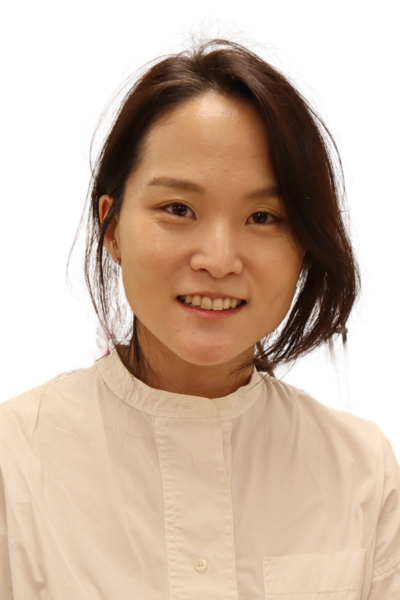
“While I was working with children who had English as a Second Language and Special Educational Needs, it became increasingly clear that each student brought unique requirements that extended beyond their academic needs. Their emotional well-being appeared to be a crucial factor for their learning. I felt an urge to pursue a deeper understanding of their whole sense of being.
I chose the Perinatal, child, adolescent and family work: a psychoanalytic observational approach (M7) course at the Tavistock and Portman because I genuinely believed that it was the right place for me to gain a more observant eye and holistic view – through the two-year infant observation, seminars, work discussion and their awareness of a culturally diverse approach.
What I have found most enjoyable about the course is the people. The course is rich in thought-provoking theories, and the seminars are a platform for reflective discussions that incorporate a variety of perspectives and experiences shared by both fellow students and seminar leaders.
While the course is undeniably thought-provoking and stimulating, there are moments when it can become quite intense. This intensity has created a space where we can openly share our diverse ways of seeing and feeling, allowing us to connect on a deeper level and share our vulnerabilities. Through this process, I believe I’ve formed lasting friendships.
The course has been a pivotal part of my life and has changed the way that I see and reflect upon things. I have become more aware of the impact I have on others and what others evoke in me. The seminars have provided me with a space to find my voice, allowing me to embrace and express a range of emotions.
Through the practice of observing infants and young children, participating in reflective seminar groups and embarking on the journey of the M7 course, I’ve adopted a more reflective approach interacting with people and building relationships. I’ve become more attuned to the nuances of thought and emotional processes, granting me the ability to step into someone else’s shoes. While this remains an ongoing journey, this course has undeniably enriched this aspect of my life.
What has surprised me the most about the Trust is the approach to learning. The course leaders, seminar leaders and personal tutors have been keen to learn from us, the students. What also stood out to me was their stance on cultural diversity, recognising both sameness and differences of all individuals. This perspective is integral to our assignments and our approach to addressing theories and seminar discussions, emphasising the importance of making sure we are bearing in mind the current times and the changes of society.
If you are thinking about applying, don’t hesitate – go for it! It is a commitment and can feel quite hefty at times, but I can confidently say that it will not disappoint. The depth and breadth of knowledge and personal growth you gain from this course extend far beyond academics – it’s truly life changing.”
Meet Nij, a student on Advanced practice and research: systemic psychotherapy (M10)
Previous student on Systemic psychotherapy (M6)
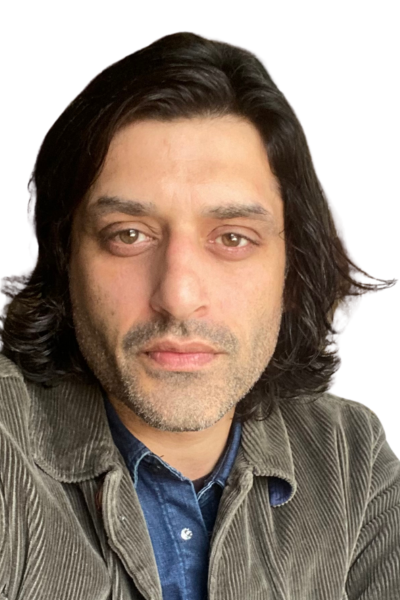
“The Tavi is known for being the gold standard when it comes to clinical training and practice. It has catapulted my career over the past seven years. I am now a clinical and service lead, a visiting lecturer, and have published several papers, supporting clinical social care and health practice. This I put down, in part, to my learning and practice at the Tavistock and Portman.
I appreciate the way that the Advanced practice and research: systemic psychotherapy (M10) programme invites me to challenge previously-held views and assumptions, and to think more critically, creatively and philosophically about my chosen area of research. I was surprised by the invitation to be more politically and social action orientated in my work. The Tavi has helped me to connect the dots when challenging systems of oppression via post-colonial theories in my research, practice and educating. Although the Tavi has its own organisational challenges (like any other western academic institution), they actively seek out conversations to address them, in attempts to be more progressive in maintaining their high standards.
If you’re thinking of applying to study here, expect to be challenged on every level, be it academically, mentally and spiritually – the Tavi seems to have a way of stripping things down to the bare bones, which in turn has you questioning everything! However, from those bare bones, you are built back up, equipped with the tools and skillset to take informed positions and the ability to think critically and thoughtfully regarding your chosen subject matter.”
Meet Rosie, a student on Psychodynamic reflective practice in mental health (D65)
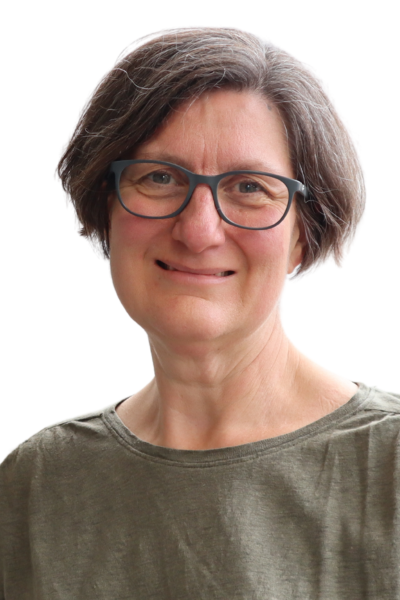
“Many years ago, I came to the Tavistock and Portman for a one-year, part time course for teachers, and it was a turning point in my life. Partly as a result of that course, I decided to change careers and work in mental health and now, thirty-five years later, I have the opportunity to come back and I am thinking about the process of training as a psychotherapist.
I appreciate the specialist character of the Tavistock and the clarity of the model taught here. I found the application process accessible, with an open day where I could meet and talk to the course lead. Although the Tavistock is very famous, I find it to be friendly and positive.
Psychodynamic reflective practice in mental health (D65) is a stand-alone course, and I love meeting my group and hearing about their placements and I feel that we bonded quickly. Some of them had done another course here last year, and some are new. The course is structured with a seminar for the first hour, based on that week’s reading and then in the second hour we discuss a presentation which one of our group has prepared. In the seminar, our tutor provides an accessible and thoughtful introduction to psychoanalytic theory related to the reading, and we get to reflect on it and discuss our reactions and thoughts. There’s plenty of scepticism and room for exploration and building on knowledge; every individual’s contribution is welcomed and valued. The second hour is a work discussion group and everyone has to take a turn to write up a short presentation based on their placement or work place. All the group members have been able to find a suitable placement and it’s amazing to hear about the different settings where people are working and the variety of mental health experiences that they are related to. Our facilitator draws our attention to aspects of theory and also to the way we are functioning as a group when we talk about the scenarios. The tutors are obviously very knowledgeable and validating of our efforts to learn and make sense of what we are encountering.
Having access to the Tavistock library is another great benefit to being on this course. As a returner to study I’ve been grateful to the librarians who have kindly helped me navigate the system and also the online resources are amazing. The course material is well organised and the reading for each week is available online so it’s easy to get to and the amount of reading isn’t overwhelming. However, having additional reading lists and so many books and journals available is fantastic.
This course is definitely enriching my life. It’s making me think more deeply and to be more in the moment with people I interact with at work and also outside work. I am using the course as a preliminary step towards working out whether I would like to apply for psychotherapy training next year. I think the contact with the institution and having access to the tutors and entering personal therapy will be a good way of acclimatising myself if I do decide to apply.
If you are thinking about courses to do, then come to an open day and talk to the tutors and the admissions team. If you are already working in mental health, Psychodynamic reflective practice in mental health (D65) is a great reflective practice opportunity. If you are not, then you will definitely benefit from the requirement to take on a placement. My experience is that this is a supportive and enjoyable learning environment.”
Meet Eva, a student on Advanced practice and research: consultation and the organisation (D10D)

“I completed a Master’s degree in Strategic Leadership at the Tavistock and Portman some years back and benefitted then from the richer perspective that systems-psychodynamic approaches brought to my leadership roles.
I joined the Advanced practice and research: consultation and the organisation (D10D) doctorate programme to help me make sense of my experience of working in public sector organisations. I find the course academically stimulating, and enjoy the forums and spaces provided for thinking, feeling and experiencing group dynamics. I appreciate the space to ‘stop and think’, as well as the rich reading and access to resources to enhance my knowledge base.
The course has had an impact on my life both personally and professionally. On a personal level, I feel much more sighted and equipped to understand ‘who I am’ and why, based on the psychodynamics of my life experiences. On a professional level, I have excelled in my career, however more importantly I am always curious about organisational systems, and their impact on individuals working in those systems. I am more considerate and open-minded leader.
If you’re considering applying to the Tavistock and Portman, my advice would be to embrace the unique experience and rich learning.”
Meet Milša, Emotional care of babies, children, young people and families (EC1)
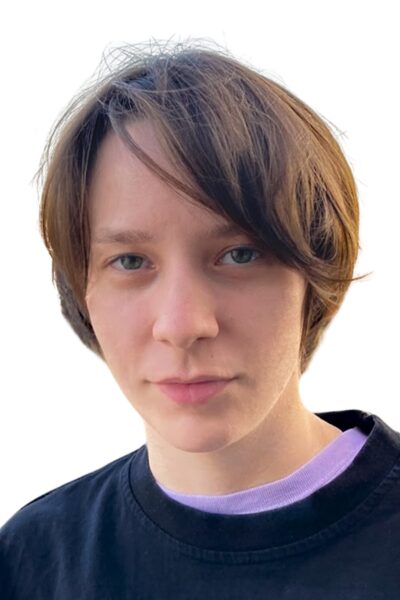
“I initially trained as an architect but decided to switch careers to child and adolescent psychotherapy. Therefore, I looked for a course that welcomed people from different professional backgrounds and could serve as a starting point in this field without needing prior work experience. Having experienced psychoanalytic psychotherapy myself, I was particularly interested in a psychoanalytical approach. This course perfectly aligned with both of my ambitions. It is also eligible for a Student visa, which was another prerequisite for me, as I would not have been able to begin my training in the UK otherwise. I finally decided to apply when I learned about its diverse teaching methods, themes, and emphasis on experiential learning, including a term of infant observation.
The course leads and visiting lecturers were insightful, generous, knowledgeable, and open-minded and the group was quite diverse, making every discussion rich and thought-provoking. It was a safe and supportive space for all of us to share our reflections and experiences on very sensitive and demanding subjects. This environment also helped me navigate the challenges in my work placement. Each module was different, as were the types of written assignments. This diversity made the course more comprehensive and improved my ability to communicate about the children I work with to my colleagues and other professionals. I also benefited greatly from my tutorials. Overall, the course provides an excellent foundation for understanding and navigating the different emotional needs that occur at various developmental stages under diverse life circumstances.
The process of writing assignments was challenging. I found it difficult to decide what to include and what to leave out, especially since each assignment heavily relies on personal reflections. However, this process prepares one to become more succinct in communicating dense emotional experiences in a digestible format to others, which is helpful later when sharing insights about the children one has worked with for a long time. Another challenge was the personal responsibility of determining what to share from one’s personal life, but this is inherent in this type of engagement wherever one goes.
I would definitely recommend EC1. The course welcomes and benefits people from various backgrounds. We had individuals like myself, coming from entirely different professional backgrounds, and others with extensive experience in caring roles with children or adults, but lacking academic and theoretical experience, particularly in psychoanalytical concepts and frameworks. The diversity of previous experiences among both students and lecturers significantly enriched the learning outcomes.
My advice to potential applicants would be not to worry about ‘succeeding’ at any point in the course, whether it’s writing an assignment or finding a child to observe. The course is designed with the understanding that every challenge is an equally important part of the learning process; there are no better or worse ways to approach it. Tutorials are helpful and give space to ask specific questions and receive further guidance. There are also different ‘thinking space’ groups at the Tavistock focused on specific marginalised groups. I would recommend joining them and always keeping an eye out for different spaces available to share one’s experiences.”
Meet David, Psychodynamic reflective practice in mental health (D65)
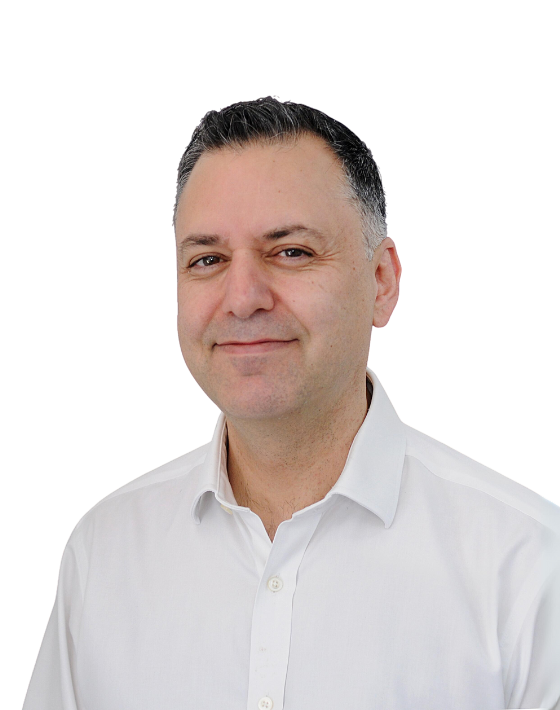
“I thoroughly enjoyed my time on the Introduction to counselling and psychotherapy (D12) course, which I finished last year. The lecture themes and reading material developed on each other week to week. I was able to learn in a supportive environment, with the opportunity to discuss the materials with my peers and learn from each other as well as from the seminar leaders. I found the approach to learning through experience allowed me to really “get” and understand the information in a fresh way. All in, I thought the teaching standard was first class and it has really opened up an exciting future path for me. I am now on the Psychodynamic reflective practice in mental health (D65) course, which I have found to be supportive, explorative and excellent.
Lots of things have surprised me at the Trust. I wasn’t expecting such an experiential way of learning, which has been a real joy. Learning through experience, trying and discussion is so much more interesting than just learning from a book. Also, I volunteer in the community to support my learning and it really surprised me how much I would learn from this. I thought it would just be a sort of thing I had to do alongside my reading, but actually it has allowed for really valuable life experiences that I never would have had otherwise. To anyone thinking of applying to study at The Tavistock and Portman, I would say: Go for it, it’s a fantastic place. Go to an open day, it’s a fantastic resource for experiencing the Trust. Ask questions, even if they sound silly to you, just ask and find out!”
Meet Charlotte, Consulting and leading in organisations: psychodynamic and systemic approaches (D10)
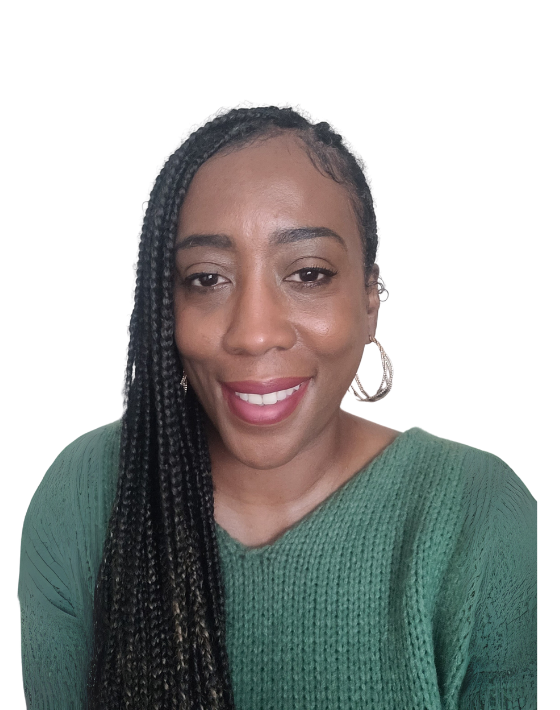
“I was drawn to Tavistock and Portman for its reputation and distinctive approach to leadership development, which truly resonates with me. I immediately recognised the course as the only avenue that would bring genuine excitement and growth to both my professional and personal development. It speaks to the heart of what I value – where learning can complement workforce needs, while also advancing my own personal evolution.
With two decades of experience in social work and middle management, I felt ready to reflect on the patterns, experiences and unconscious influences shaping my leadership career. The course’s focus on visible and invisible aspects of organisational life aligns with my goal to better understand my role as a leader, and it has helped me to develop my existing skills in ways that open up new pathways in consultancy and leadership. Without sounding cliché, the course’s overall prospects felt limitless.
Attending monthly face-to-face sessions, where I connect with like-minded students in shared learning, has been a highlight of the course. I especially enjoy applying theory to practice, particularly through CLiP and experiential groups where deeper, reflective work unfolds, enriching my consultancy approach and fostering open, constructive spaces for organisational change. The lecturers encouraged my use metaphors and draw from the ‘social field’ to make sense of my feelings and ideas – everything I experience, feel (even dream!) is relevant to understanding the unconscious.
The course has had an immense impact on me. Through The Tavistock and Portman’s commitment to bridging the gap and encouraging individuals from Global Majority backgrounds, I’ve had access to an arena that can feel exclusive, exclusionary and challenging to enter for members of this demographic. Being part of this course has enhanced my pride, self-belief and purpose. It’s given me the freedom to choose career paths with autonomy, working smart rather than hard to the detriment of my wellbeing. This impact is evident in my current job search, where I feel confident leveraging my social work and managerial experience, along with the systems-psychodynamic learning, to help organisations uncover hidden dynamics and latent issues. It has profoundly shifted my perspective on consultancy and leadership, expanding my opportunities and providing invaluable tools for growth.
Meet Patricia, Social work (M23)

“I chose to pursue my MA in social work at the Tavistock and Portman because of its unique approach to training mental health professionals. The Trust’s emphasis on psychodynamic theory, group work and systemic thinking aligns perfectly with my belief in understanding the complex interplay between individuals, families, and communities. I was particularly drawn to Tavistock and Portman’s commitment to fostering a supportive and reflective learning environment, which I believe is essential for developing the skills and knowledge needed to become a compassionate and effective social worker. Additionally, I appreciate the focus on group work, which provides a unique opportunity to learn from my peers and develop essential interpersonal skills that will be invaluable in my placement and career.
One thing that has surprised me at Tavistock and Portman is the incredible diversity of students and teaching staff. Despite coming from different backgrounds and having varied experiences, we have all found common ground in our shared passion for mental health and human development. This diversity has enriched the learning environment and has challenged me to think critically about my assumptions and biases. Additionally, I’ve been impressed by the quality of teaching and supervision provided by the social work teaching staff at the Tavistock and Portman. Their expertise and commitment to student development have been invaluable in helping me to connect my academic learning with the realities of social work practice.
Meet Kairo, Child and adolescent psychoanalytic psychotherapy (M80)
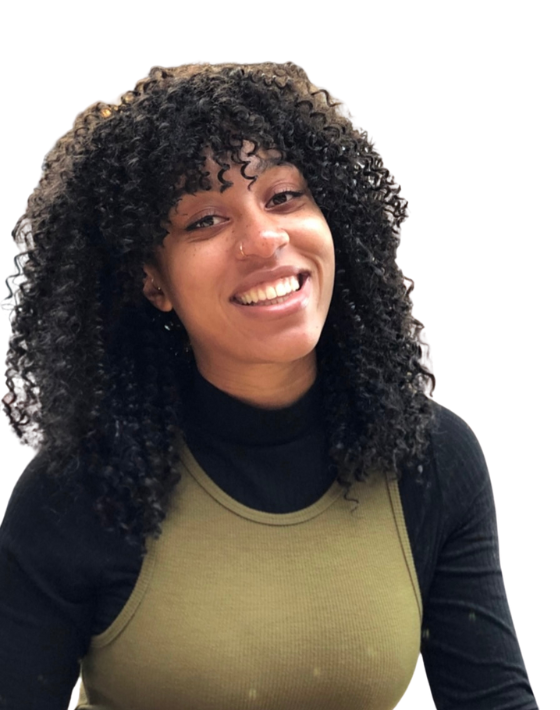
“I chose to train at the Tavistock and Portman due to the rich psychoanalytical history and breadth of teaching and supervision I would have access to. I enjoy the case discussion conversations with my colleagues and the application of theory to clinical experience, which is helpful for my daily job working with children and their families. The variety of specialist workshops I can attend over the 4 years has also been enjoyable, as I have been able to tailor my training to my interests alongside my clinical requirements. The amount of reflective spaces the Trust holds is really interesting and helpful in meeting colleagues in different teams and disciplines. The willingness to think and be reflective in the Trust really aids your learning.
If you’re considering applying to train at The Tavistock and Portman, the advice I would offer is to do your research and visit open days, ask as many questions about the courses as you can, but also keep in mind that working in the mental health / emotional wellbeing sector also means that you have to adapt expectations to meet the needs of the individuals you are working with. The training has had an impact on in all areas of my life – it is hard but also really rewarding. It has made me a more open, thoughtful and curious person as well as therapist.”
Meet Rasik, Child, adolescent and family mental wellbeing multidisciplinary practice (ED24)
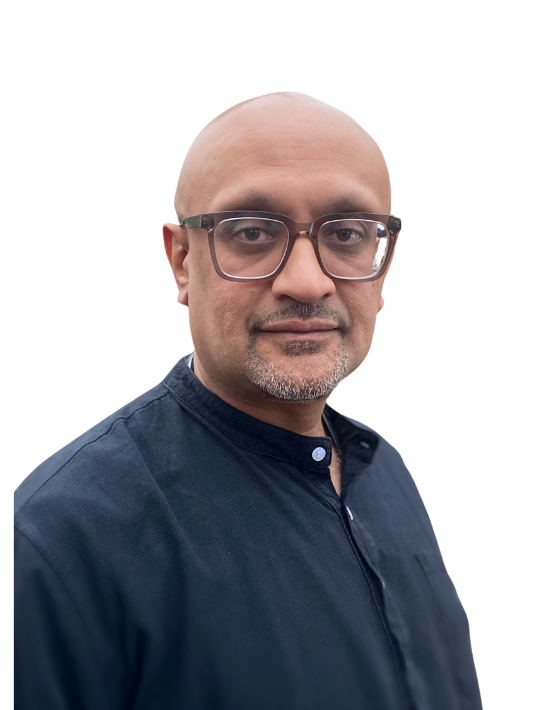
“I chose to study at the Tavistock and Portman NHS Foundation Trust mainly due to the institution’s esteemed reputation and its convenient proximity to me. Additionally, the breadth and diversity of courses offered were a significant factor in my decision.
Reflecting on my experience, it’s challenging to single out a specific aspect I enjoyed most, as it was a combination of factors: the quality of the lecturers, the engagement with fellow students, and the thought-provoking curriculum. Each component contributed to an educational experience that broadened my understanding and encouraged me to explore perspectives I hadn’t considered previously. If I had to highlight one aspect, it would be the lecturers, who transformed learning into an engaging and enjoyable process rather than a routine task.
The course has profoundly impacted my outlook; I find myself approaching life with extraordinary patience and tolerance, appreciating diverse perspectives and gaining a more holistic understanding of people and their experiences.
One of my most significant accomplishments was graduating from the postgraduate programme, fulfilling a lifelong aspiration. As someone with dyslexia, I have often questioned my academic potential, but the support I received from lecturers and the Student Support and Engagement team was invaluable. This experience has shown me that with the proper support, any goal is achievable. My gratitude goes out to the D24 team.
For prospective students considering a course at the Tavistock and Portman NHS Foundation Trust, I suggest carefully reflecting on the direction you would like to take and the course that’s best for your goals. Specifically, I highly recommend the D24 programme – the course material is thoughtfully curated, and the staff support is exceptional. Trusting the learning approach here can lead to transformative personal and professional growth.”
Meet Runbao, Psychoanalytic studies (M16)
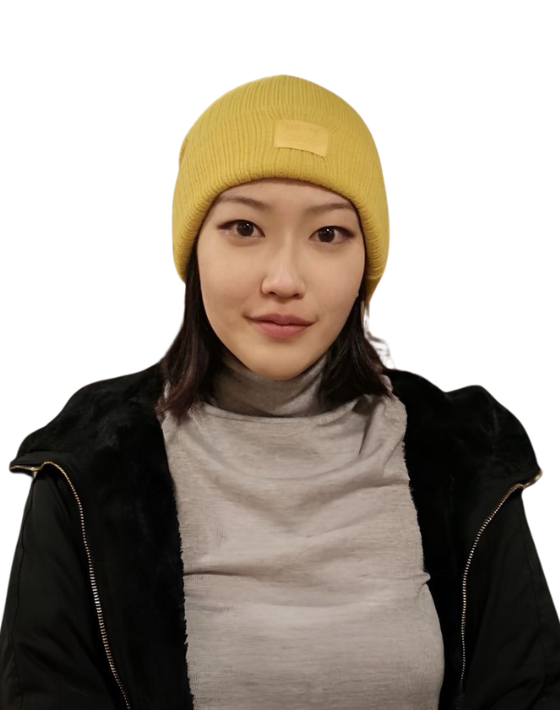
“Becoming a psychodynamic therapist has always been my dream, and studying at the Tavistock and Portman – a highly respected institution – was the ideal choice to make that dream a reality. I was drawn to the breadth of courses offered here, covering everything from introductory to advanced levels, encompassing theory and practice. This structure means that, regardless of one’s starting point or familiarity with psychoanalysis, there’s a pathway for everyone interested in this field.
I also appreciate the importance of an environment that encourages growth and self-exploration. From my initial communications to my interview with the course leader, I experienced the welcoming and containing environment that the Trust offers, allowing students to safely explore and develop their potential. This reassured me that Tavistock and Portman would provide the supportive yet challenging environment essential for my professional journey. Having previously completed an MSc at another fine UK university, I was pleasantly surprised by the personalised experience that Tavistock and Portman provides, particularly for international students. The institution may be small, but the focus on students’ needs is evident in both the course structure and the quality of teaching.
Indeed, the dedication and passion of my teachers has been the most enjoyable part of my course. Each of them brings a wealth of practical experience and transforms complex theoretical concepts into vivid, relatable insights. They generously share their understanding of psychoanalytic theory and practical experience, encouraging us to see learning as an active, collaborative process. I appreciate how our discussions go beyond traditional lectures – inviting us to contribute our interpretations and fostering a space where every perspective is valued. As an international student, studying abroad can be challenging, but the warmth, support and devotion of my teachers, particularly my personal tutor, has made my learning journey enjoyable and fulfilling rather than overwhelming.
The M16 course has provided a strong foundation for my career as a psychodynamic psychotherapist, covering key areas such as theory, application of theory, infant observation and research. Through these components I’ve gained the essential skills and knowledge to continue my clinical training. On a personal level, the programme has also transformed my relationship with uncertainty. As one of my teachers said, life is full of uncertainty and the process of completing this course has helped me to develop a greater tolerance for it. Instead of being overwhelmed by uncertainty about the future, I am now more open to embracing the unknown and exploring both my inner world and the world around me.
To anyone considering apply to study at the Tavistock and Portman – get ready for a fascinating and challenging journey! Don’t hesitate to express your thoughts and ideas in class – let your personality, unique perspectives and imagination shine bright. This course isn’t just about absorbing knowledge; it’s about engaging deeply with the material and contributing to an enriching, collaborative learning environment.”